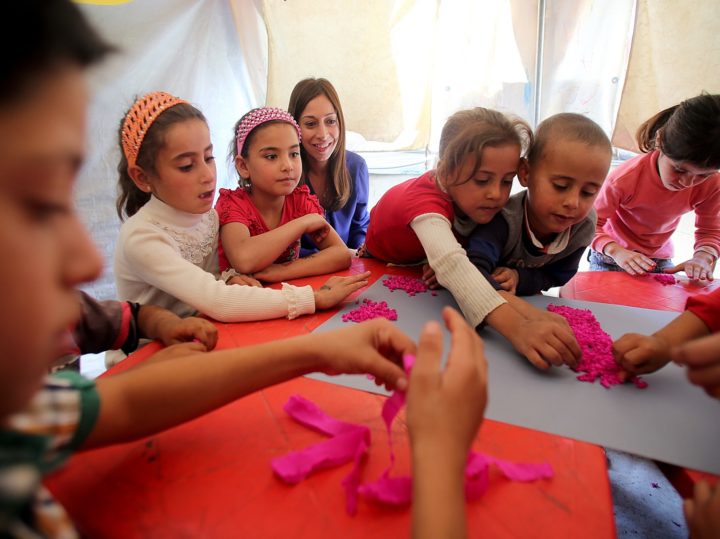Many refugees, particularly those fleeing conflict-affected areas, carry a great deal of trauma as a result of witnessing or experiencing extreme violence and other atrocities. The ability to talk about and process this trauma is considered to be crucial to the process of healing and recovery.
However, refugees are often denied the opportunity to verbally process their traumatic experiences in formal language education settings, where the use of immersion approaches actively prevents them from using their home languages.
This is now changing, thanks to the introduction by Dr Tony Capstick at the University of Reading of the concept of ‘language for resilience’. Based on Capstick’s research into trauma-sensitive methods of language learning, this concept supports the use of home languages by refugee and migrant learners, with a view to enhancing their resilience and affirming their social identities.
Capstick’s research has led to changes in educational policy and practice, including through the establishment of the ‘Colleagues Across Borders’ project, which involves the delivery of online mentoring for English teachers in Iraq by experts from the University of Reading. Participants have commented on how their practice has changed as a result, especially in relation to working with adolescents who may have experienced trauma.
The concept of language for resilience is now also used by the British Council to design their language teaching programmes for government and NGOs in Sub-Saharan Africa and the Middle East, as well as informing their production and distribution of trauma-sensitive materials and resources for teachers.
Find out more
Language and migration (blog post, Dec 2020)
Language for Resilience (British Council report, 2018)
Migrants and Refugees in Education: A toolkit for teachers (British Council/FutureLearn online course)
View the full impact case study on the REF 2021 website: Language for Resilience: A global programme of language learning for refugees and migrants.

